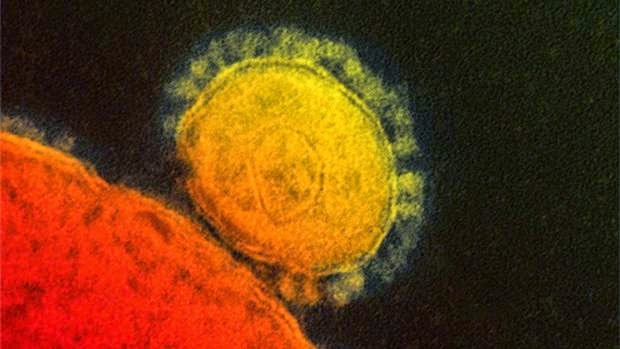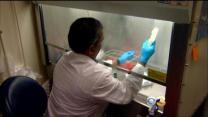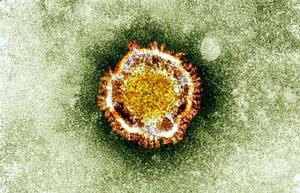Middle East Respiratory Syndrome (MERS) is a viral respiratory illness that is new to humans. Symptoms can include fever, cough, and shortness of breath. Since it was first reported in Saudi Arabia in 2012, MERS has caused severe illness and even death in people from several countries. The virus has spread globally, including into the United States.
Since MERS first emerged in the Arabian Peninsula in 2012, CDC has been working very actively with global partners to better understand the nature of the virus, including how it affects people and how it spreads. Beginning in mid-March of 2014, there was a substantial increase in the number of MERS cases reported worldwide. The reason for this increase in cases is not yet completely known. What CDC does know is that because we live in an interconnected world, diseases, like MERS, can make their way to the United States, even when they begin a half a world away.
Understanding the Virus
The virus that causes MERS is called Middle East Respiratory Syndrome Coronavirus (MERS-CoV). Coronaviruses are common viruses that most people get some time in their life. Human coronaviruses usually cause mild to moderate upper-respiratory tract illnesses. However, MERS-CoV is different from any other coronavirus previously found in people.
We don’t know for certain where the virus came from, but we think it likely came from an animal source. Researchers have found MERS-CoV in camels in from several countries and a bat in Saudi Arabia..We don’t know whether camels are the source of the virus. Studies continue to provide evidence that camel infections may play a role in human infection with MERS-CoV. However, more information is needed.
MERS Symptoms
Some infected people had mild symptoms or no symptoms at all, but most people infected with MERS-CoV developed severe respiratory illness. They had fever, cough and shortness of breath. Others reported having gastrointestinal symptoms, like diarrhea and nausea/vomiting, and kidney failure. MERS can even be deadly. Many people have died.
How MERS Spreads
MERS-CoV spread into the United States when infected travelers from other countries entered the country. In other countries, the virus has spread from person to person through close contact, such as caring for or living with an infected person. The MERS situation in the U.S. represents a very low risk to the general public in this country.
While experts do not yet know exactly how this virus is spread, CDC advises Americans to help protect themselves from respiratory illnesses by washing hands often, avoiding close contact with people who are sick, avoid touching their eyes, nose and/or mouth with unwashed hands, and disinfecting frequently touched surfaces.
MERS and Travel
CDC does not recommend that anyone change their travel plans because of MERS. The current CDC travel notice is an Alert (Level 2), which provides special precautions for travelers. Because spread of MERS has occurred in healthcare settings, the alert advises travelers going to countries in or near the Arabian Peninsula to provide healthcare services to practice CDC’s recommendations for infection control of confirmed or suspected cases and to monitor their health closely. Travelers who are going to the area for other reasons are advised to follow standard precautions, such as hand washing and avoiding contact with people who are ill.
For information about cases and deaths by country, visit World Health Organization (WHO)
Learn more about MERS in the U.S.
For more information, see CDC’s travel notice on MERS in the Arabian Peninsula.













